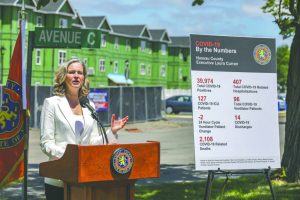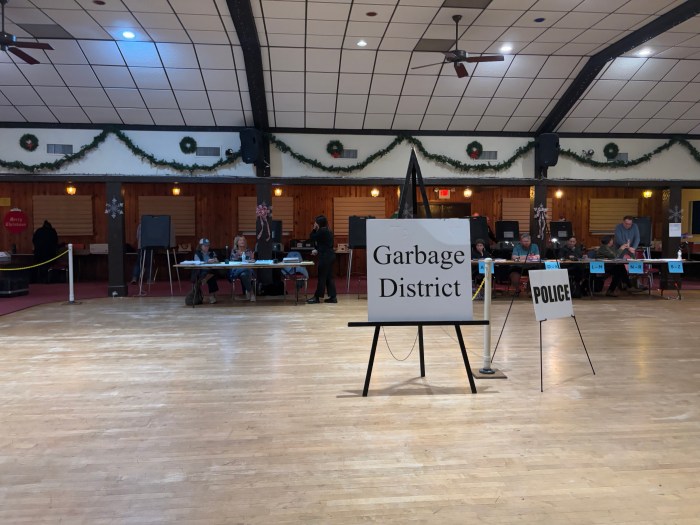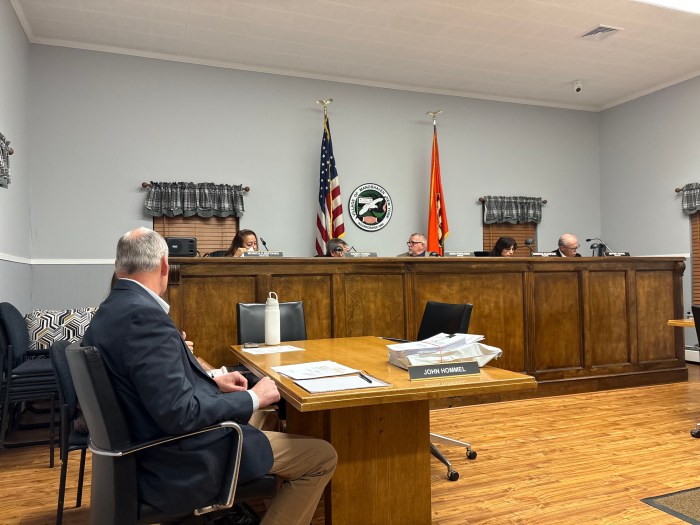After weeks of confusion over guidelines, guidelines and more guidelines, Nassau County Executive Laura Curran took to a podium on Wednesday, May 27 to give out the news that thousands of Long Islanders have been waiting to hear.
“Today marks the day that we can finally move forward in getting our people back to work,” Curran said. “We’re in phase one.”
Now that Long Island has entered the first phase of the state’s regional reopening process, workers and business owners across Nassau and Suffolk County are hopeful their economic hardships might begin to turn around in a safe manner.
“We’ve been doing curbside for a while now, and things have been working out pretty good,” Joanne Surleti, owner of Joanne’s Variety in East Williston said. “We’re just hopeful now that things will start to get back to normal.”
At the time of Curran’s announcement, Nassau County had recorded a total of 39,974 positive cases of COVID-19, though just 407 of them were currently hospitalized for the illness. There have been 2,108 COVID-19 deaths among Nassau residents as of May 27, the eight-highest total of any county in the United States according to statistics from Johns Hopkins University.
While Wednesday’s announcement was a cause for celebration for many, in truth this marks just the first part of a long process geared towards returning Long Island to something resembling its pre-coronavirus state. In the first phase the island just entered, a number of businesses that were considered nonessential when the shutdown commenced can now begin operations again in some way. Construction businesses, wholesalers and manufacturing businesses have been given the green light. In addition to them, retailers in fields such as clothing, jewelry, electronics and luggage have been cleared to begin offering curbside services outside their places of business.
Every metric available has shown Long Island has suffered economically since coronavirus began its march through the region. Regional unemployment statistics released by the New York State Department of Labor show that the unemployment rate for Nassau and Suffolk stands at 16 percent. A year ago, just 3.1 percent of Long Islanders were unemployed. That 16 percent number is the highest the department has recorded since it began keeping track of unemployment statistics by region more than 20 years ago.
Businesses themselves have also reported significant financial struggles. In a survey conducted by Hofstra University, nearly half of all business owners in Nassau County who responded said they expect to lay people off this year due to coronavirus. Of those that said they expect layoffs, more than half said they already had to let people go. Thousands of Long Islanders have filed for unemployment benefits with the state, and while aid often remains backed up due to high demand many have reported their situation is growing more and more grim.
“People are already on edge from COVID-19 in general,” Syosset-based real estate agent Jordan Oringer said. “Then you add money problems onto it, especially if you have kids to feed or you’re trying to keep a roof over your head. People are going to explode soon. I don’t know what the state and the government expect people that are desperate to do. I don’t think that they understand the gravity of the situation, it’s hard to comprehend.”
While the ongoing shutdown continues to impact local businesses and drive up unemployment numbers, Nassau County Department of Health Commissioner Lawrence Eisenstein and other health officials have consistently warned about the dangers of trying to reopen Long Island too early.
“Until you have zero cases, you have to make sure that the mechanisms are in place to prevent the spread of disease,” Eisenstein said. “We have seen in other places that have opened, when measures were not done really carefully the disease is just reenergized.”
As of May 28, New York City is the only one of the state’s 10 regions that has yet to enter phase one. The first regions in the state that fulfilled all seven requirements to begin the process were concentrated upstate. Long Island became the ninth region to hit those marks, which include having at least 30 percent of hospital beds in the area open to receive new patients and multi-week sustained declines in COVID-19 hospitalizations and deaths.
Now that Long Island has entered phase one, local officials will work to help bring the region into the second phase of the reopening process. That phase, which state guidelines have said no region can enter before May 30 at the earliest, will allow for storefront retailers, real estate and finance businesses to begin operating once again. Following that, phase three is geared towards the hospitality industry while phase four will allow for schools, entertainment and recreational businesses to reopen. The process is expected to take months to complete, and studies have anticipated the region will not reach its pre-COVID economic state for several years at least.




























